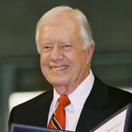What was Robert F. Kennedy's Net Worth?
Robert F. Kennedy was an American politician and lawyer who had a net worth of $14 million at the time of his death. That's equal to around $100 million in today's dollars after adjusting for inflation. The brother of US president John F. Kennedy, he served as the US attorney general from 1961 to 1964, and then as a US senator from New York from 1965 until his assassination in 1968 during his presidential campaign. Among his many actions, Kennedy was known for promoting the civil rights movement, fighting organized crime, raising awareness of poverty, and opposing US involvement in the Vietnam War.
Early Life and Education
Robert Francis Kennedy was born on November 20, 1925 in Brookline, Massachusetts into the wealthy and politically prominent Kennedy family, headed by Joseph Kennedy Sr. and Rose Kennedy. He was the seventh of their nine children, with his siblings being Joseph Jr., John, Rosemary, Kathleen, Eunice, Patricia, Jean, and Ted. As his father achieved greater and greater success with his businesses, Kennedy and his family lived in increasing affluence in Massachusetts, New York, Florida, and London.
In 1939, Kennedy began attending the elite Protestant prep school St. Paul's School in New Hampshire. However, his mother was displeased with the school's use of the Protestant Bible, and consequently withdrew Kennedy from St. Paul's. She then enrolled him in Portsmouth Priory School, a Benedictine Catholic boarding school in Rhode Island. In 1942, Kennedy transferred to a different boarding school, Milton Academy, from which he graduated in 1944. After serving in the US Naval Reserve for two years, he attended Harvard University, from which he earned a degree in political science. Kennedy went on to earn his law degree from the University of Virginia in 1951.
Career Beginnings
After graduating from Harvard, Kennedy went with a college friend on a six-month sailing tour of Europe and the Middle East. During this time, he was accredited as a correspondent for the Boston Post, filing stories about the ongoing tensions in Palestine. Following his admission to the Massachusetts Bar in 1951, Kennedy worked as a lawyer in the Internal Security Division of the US Department of Justice. In early 1952, he was transferred to the Criminal Division. By the middle of the year, he had resigned so he could manage his brother John's successful US Senate campaign in Massachusetts.
At the end of 1952, Kennedy was appointed by Senator Joseph McCarthy as one of 15 assistant counsel to the US Senate Permanent Subcommittee on Investigations. However, he strongly disapproved of McCarthy's draconian methods, and resigned in the summer of 1953. Kennedy later achieved national attention as the chief counsel of the Senate Rackets Committee from 1957 to 1959. In that role, he publicly challenged Teamsters president Jimmy Hoffa over the corrupt practices of the Teamsters union. Kennedy resigned from the committee so he could help manage his brother John's successful presidential campaign in 1960.
US Attorney General
Following the victory of his brother John in the 1960 presidential election, Kennedy was appointed as US attorney general. At only 35 years of age, he became one of the youngest cabinet members in American history. During his tenure as attorney general through 1964, Kennedy continued his crusade against organized crime, including within the Teamsters and the Mafia. Convictions against organized-crime figures rose by 800% during Kennedy's tenure. In other actions, he fought against juvenile delinquency and advocated for the civil rights movement. However, he also caused controversy within the movement, largely due to his direction to the FBI to wiretap Martin Luther King Jr. and other leaders of his civil rights organization.
Among his other actions as attorney general, Kennedy played a key role in the events surrounding the Berlin Crisis of 1961, relaying important diplomatic communications between the US and Soviet governments. He later oversaw the CIA's anti-Castro activities in Cuba following the failed Bay of Pigs Invasion. Kennedy penned a memoir about the Cuban Missile Crisis, entitled "Thirteen Days," that was released posthumously in 1969. He endured more turmoil in late 1963 when his brother John was assassinated in Dallas, Texas, an event that reportedly made him more cynical about the political system he once relied on.

Getty
US Senator
In August of 1964, Kennedy announced his campaign for the US Senate to represent New York. He went on to win the general election by defeating Republican incumbent Kenneth Keating. During his tenure in the Senate, Kennedy advocated for gun control and spoke in support of impoverished and otherwise marginalized ethnic minorities. He helped start a redevelopment project in the poverty-stricken Bedford-Stuyvesant neighborhood of Brooklyn, which became a prototype for community development corporations over the years. Kennedy also placed an emphasis on human rights as a critical component of US foreign policy, denouncing injustice and opposing the US's involvement in the Vietnam War.
1968 Presidential Campaign
While meeting with civil rights activist César Chávez in California in 1968, Kennedy decided he wanted to challenge Lyndon B. Johnson for the presidency. He officially announced his candidacy in March, just two weeks before Johnson stunned everyone by dropping out of the race. Kennedy went on to run a campaign focused on racial and economic justice, social reform, and non-aggressive foreign policy. In May, he won the Indiana and Nebraska primaries, but lost in Oregon. Kennedy then scored huge victories in early June by winning both the California and South Dakota primaries, placing him second behind Hubert Humphrey for the Democratic nomination.
Assassination
Shortly after midnight on June 5, 1968 in a ballroom at Los Angeles's Ambassador Hotel, Kennedy spoke to his supporters. After the speech, he left the ballroom and took a shortcut through the hotel kitchen to get to the press room. While shaking hands with hotel busboy Juan Romero in a busy kitchen passageway, Kennedy was shot three times by a 24-year-old Palestinian man named Sirhan Sirhan. Five other people were wounded as former professional athletes George Plimpton and Rafer Johnson wrestled Sirhan to the ground. Medical attendants soon arrived, and Kennedy was rushed to the hospital. Despite extensive neurosurgery, Kennedy couldn't be saved, and he was pronounced dead at 1:44 a.m. on June 6, 1968.
Marriage and Children
Kennedy was married to Ethel Skakel from 1950 until his passing. Together, they had 11 children: Kathleen, Joseph, Robert Kennedy Jr., David, Mary Courtney, Michael, Mary Kerry, Christopher, Matthew, Douglas, and Rory. Kennedy and Skakel spent most of their time at the Hickory Hill estate in McLean, Virginia. In 2009, Skakel sold the property for $8.25 million.
























